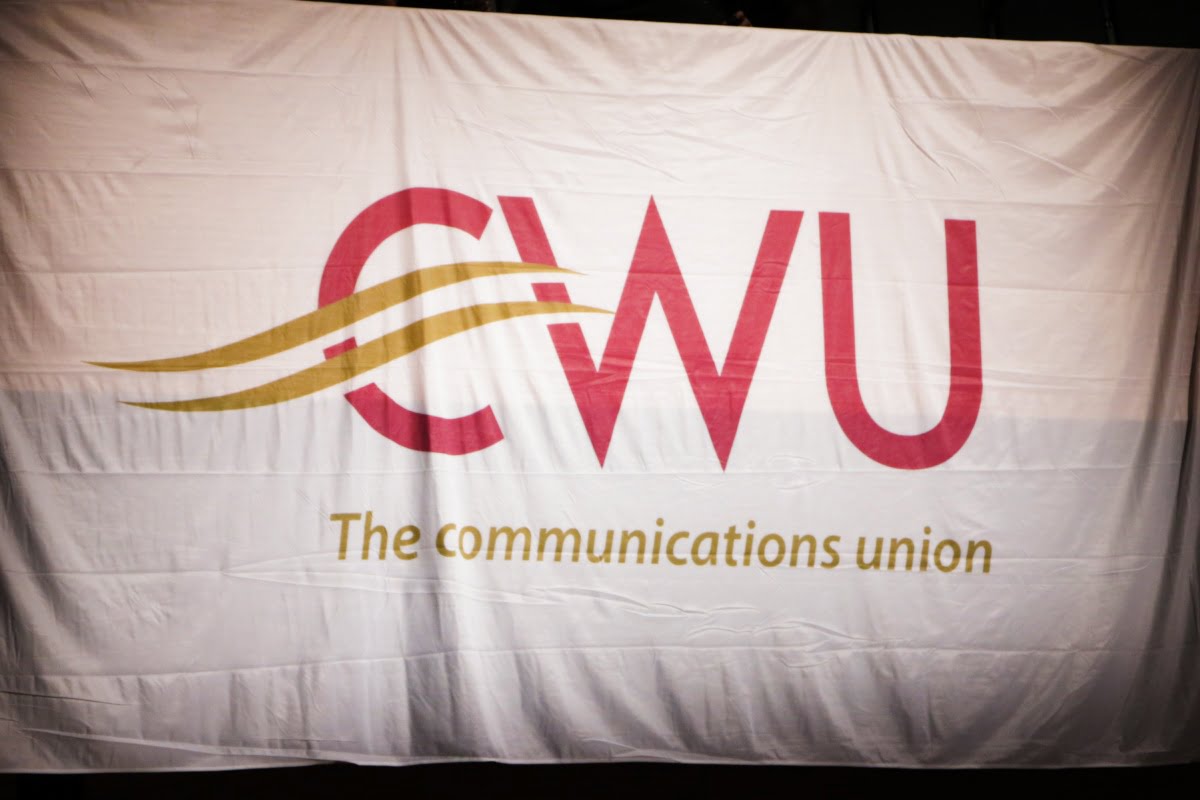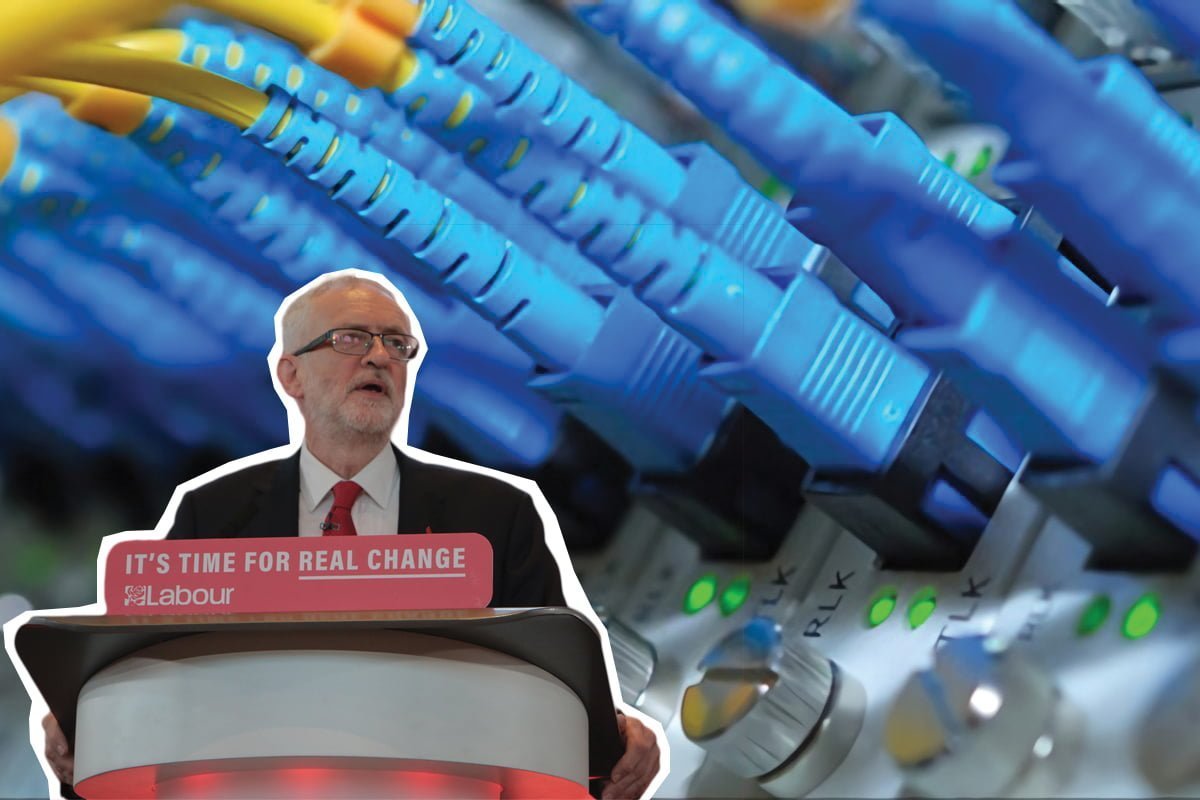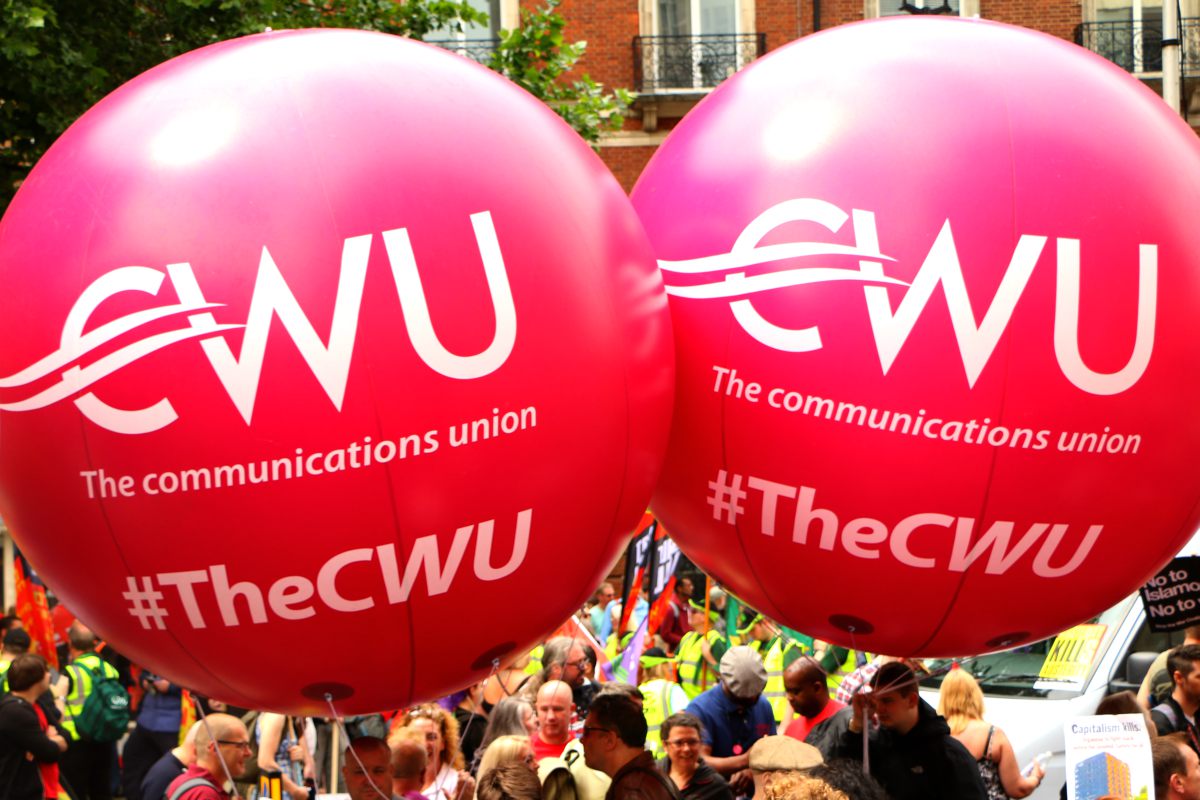CWU members at BT are gearing up to strike against attacks on jobs and conditions. While pressure mounts on telecoms workers, failure to invest has left the UK lagging behind. We need to nationalise the phone and internet providers.
British Telecom workers are set to take strike action later this year after a union consultative ballot last month returned a massive 97.9% vote for action. The December ballot result must be seen as a clear mandate to push forward and put the union on what has been called a war footing. The bosses have been warned.
With 74% of members voting, it is clear that the CWU should now call an official strike ballot. Then any resulting action will both be solid, and be able to jump over any hurdles placed in the way by Tory anti-union laws.
This could be the biggest mobilisation of BT workers since the strike of 1987.
Workers squeezed
Why are BT workers so angry? For years now, a gung-ho management – obsessed with cutting costs and boosting profits for money-grabbing shareholders – has been trying to trim down the company and squeeze ever more out of its workers.
One BT engineer told us that even during his short time with the company – which was one of the first state utilities to be privatised under Thatcher back in the 1980s – he had seen a huge increase in workloads, combined with a real cut in basic pay. The pressure has become unbearable.
The consultative ballot was sparked by an announcement of office closures, compulsory redundancies, and attacks on terms and conditions. For good measure, the 2018 pensions agreement is also to be revoked.
Although management have said that this only affects certain sections of the workforce, the warning for all BT workers is clear. BT – together with its auxiliaries, Openreach and EE – have now been told to expect an official industrial action ballot to be called.
1/ Solidarity with @CWUnews workers in BT, EE and Openreach who face the biggest threat to their working future as a result of BT Group’s decision to radically reorganise the business and close many sites. #CountMeIn pic.twitter.com/yLXD920M5P
— Rebecca Long-Bailey (@RLong_Bailey) November 5, 2020
As the union HQ explained when the ballot result was announced:
“For a long time BT Group has been claiming that our union does not speak for the employees and that people are happy with the direction of the company. This result shows how laughable those claims are and have always been…
“Our members – many of them key workers – have made it crystal clear today that they will not support an agenda of compulsory redundancies, site closures and a ‘race to the bottom’ on terms and conditions. BT Group ignores that message at its peril…”
Rising pressure
 The pandemic is only adding to the huge pressures felt by BT workers. There has been a huge increase in demand for telephone and (especially) internet services and upgrades. This requires many BT workers to be visiting and working in offices and peoples homes, with all the associated risks involved.
The pandemic is only adding to the huge pressures felt by BT workers. There has been a huge increase in demand for telephone and (especially) internet services and upgrades. This requires many BT workers to be visiting and working in offices and peoples homes, with all the associated risks involved.
The coronavirus crisis has also exposed the long-term lack of investment by BT. Many parts of the country are struggling to maintain and improve internet connectivity, given the decrepit nature of the infrastructure.
Although there are several internet providers in Britain, all (excluding cable suppliers) are dependent on BT engineers, landlines, and junction boxes to provide a connection. Service provider staff have to liaise with and use BT workers to complete installations.
As such, engineers have been at the frontline, facing a daily torrent of complaints over massive delays in upgrading (or even getting) internet services, at this time when reliable and speedy connections are most desperately needed.
Considering the essential role that the internet plays at present – with work and education moving online, and people now completely reliant on the internet to stay connected during lockdown – the question must be asked: why is Britain’s digital infrastructure in such a sorry state?
When Britain’s telecoms system was privatised, we were told it would improve efficiency and dynamism. Yet now we are behind many other countries – both in terms of internet speeds and mobile network coverage. The only thing the BT management has made more efficient is the profiteering of the bosses.
Fightback
 BT workers have had enough, and are ready to fight. In addition, Repayment Project Engineers (RPE) at Openreach have already had a strike ballot, voting nine-to-one to take action. This is likely to take place sometime in February.
BT workers have had enough, and are ready to fight. In addition, Repayment Project Engineers (RPE) at Openreach have already had a strike ballot, voting nine-to-one to take action. This is likely to take place sometime in February.
At the last election, the call was made by Corbyn’s Labour for free high-speed broadband to be provided as a universal service, under (partial) public ownership. This was attacked by the establishment at the time. But the demand is now starting to look very popular and relevant indeed.
BT and all the big internet companies should be nationalised and put under workers’ control. Only then can a proper telecoms plan be implemented, with quality infrastructure put in place that meets and anticipates the requirements of all – and not the profits of the rich.
The struggle of BT workers for a better deal and an end to management attacks must be seen as the first step towards this socialist vision.






